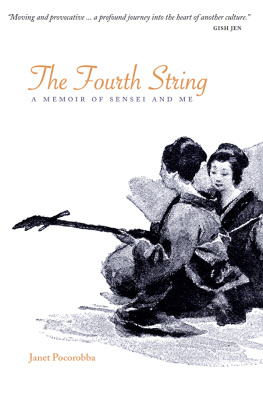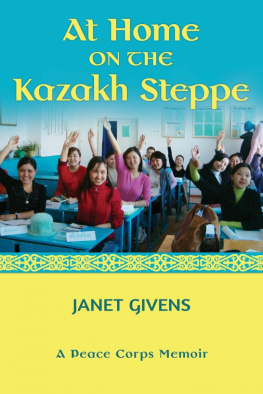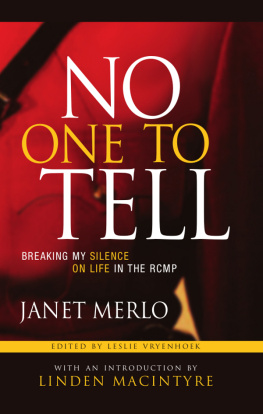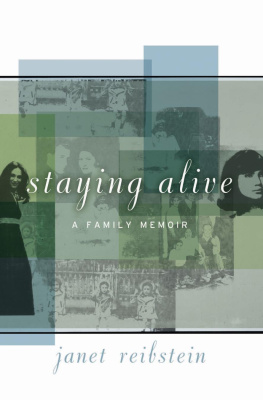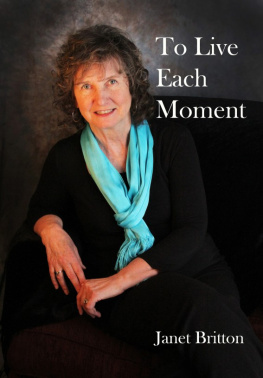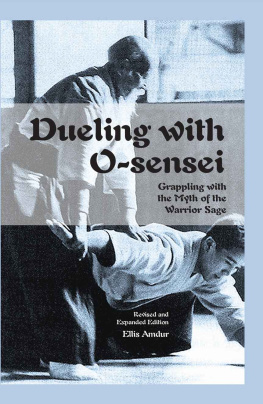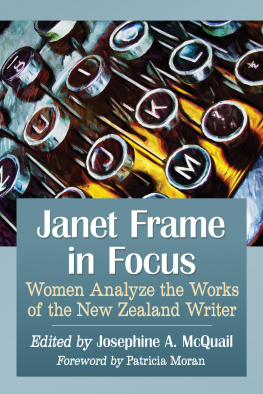Janet Pocorobba - The Fourth String: A Memoir of Sensei and Me
Here you can read online Janet Pocorobba - The Fourth String: A Memoir of Sensei and Me full text of the book (entire story) in english for free. Download pdf and epub, get meaning, cover and reviews about this ebook. publisher: Stone Bridge Press, genre: Non-fiction. Description of the work, (preface) as well as reviews are available. Best literature library LitArk.com created for fans of good reading and offers a wide selection of genres:
Romance novel
Science fiction
Adventure
Detective
Science
History
Home and family
Prose
Art
Politics
Computer
Non-fiction
Religion
Business
Children
Humor
Choose a favorite category and find really read worthwhile books. Enjoy immersion in the world of imagination, feel the emotions of the characters or learn something new for yourself, make an fascinating discovery.
- Book:The Fourth String: A Memoir of Sensei and Me
- Author:
- Publisher:Stone Bridge Press
- Genre:
- Rating:3 / 5
- Favourites:Add to favourites
- Your mark:
- 60
- 1
- 2
- 3
- 4
- 5
The Fourth String: A Memoir of Sensei and Me: summary, description and annotation
We offer to read an annotation, description, summary or preface (depends on what the author of the book "The Fourth String: A Memoir of Sensei and Me" wrote himself). If you haven't found the necessary information about the book — write in the comments, we will try to find it.
The Fourth String: A Memoir of Sensei and Me — read online for free the complete book (whole text) full work
Below is the text of the book, divided by pages. System saving the place of the last page read, allows you to conveniently read the book "The Fourth String: A Memoir of Sensei and Me" online for free, without having to search again every time where you left off. Put a bookmark, and you can go to the page where you finished reading at any time.
Font size:
Interval:
Bookmark:
Writers in praise of The Fourth String
Moving and provocative, The Fourth String charts a profound journey into the heart of another culture. What does it mean to teach and be taught? What does it mean to transform and be transformed? Are teacher and student finally, above all, comrades? This memoirpart biography, part autobiography, part portrait of an alchemyis as transmuting as its subject, and a joy to read.
Gish Jen, author of The Girl at the Baggage Claim: Explaining the East-West Culture Gap
The Fourth String is one of the most beautiful memoirs Ive read in a long time. And by beautiful Im not simply referring to its spare, elegant language but to the exceptional beauty of its spirit. This is an insightful and deeply generous book written by a woman as open to surprises within herself as she is to the revelations she discovers about her temporarily adoptive country of Japan. Janet Pocorobba is by turns curious, funny, sensitive, and always, always brave.
Pamela Petro, author of Sitting up with the Dead: A Storied Journey through the American South
The Fourth String is a piercingly insightful memoir of a young womans search for herself by diving into the demanding traditional art form of the shamisen in a country renowned for keeping outsiders at arms length. With unflinching observation of Japanese society and human relationships, she details her own entanglements with art and self-knowledge.
Liza Dalby is an anthropologist, writer, and scroll mounter
Exquisitely written takes us on a spiritual quest in a new country and culture, the soul of a place whose past secures hope and whose present yearns for modernity.
Rachel Manley, author of Drumblair, winner of Canadas Governor Generals Award for Literature
Ms. Pocorobba tells an eloquent and insightful story about Japanese music and culture. Her observations shed light on our longing for beauty and purpose. In Japan, she informs us, a child at birth is not age zero but one, which means that the first year is grown into, a shape chosen for her to reach. She does not have to become anything that has not existed already. Ms. Pocorobbas story compellingly explores this paradox: the arduous journey a person must undertake to become the musician or artist she was always meant to be.
Kyoko Mori, author of Yarn: Remembering the Way Home
In this hauntingly beautiful memoir, Janet Pocorobba shows us a world within a world that weve never seen before. This is a Japan where ancient and modern meet, where longing and belonging, foreign and familiar, are searingly depicted within the lives of two women. Pocorobbas achievement is the subtle way shes transformed how memoir so often only explores the men in mentor. In her hands, narrator and writer alike master complex and completely new notes deep within that most foreign of countries: the human psyche.
Alexandra Johnson, author of The Hidden Writer, recipient of the PEN/Jerard Fund Award Citation for nonfiction
With lyrical prose and elegant precision, Pocorobba tells a gripping story of teacher and student, practice and dreams, and the ways we listen to our own music and discover our true self.
Hester Kaplan, author of Unravished
The intimate, evocative world unveiled in Janet Pocorobbas The Fourth String is a compelling place to visit. An effortless read by a writer who manages the impossiblecapturing the ephemeral.
Elizabeth Dowd, Noh Training Project US, Producing Director
The Fourth String transports you into the exquisite minutiae of thoughtful, aesthetically oriented gaijin life in Japan.
Leonard Koren, author of Wabi-Sabi: for Artists, Designers, Poets & Philosophers

Published by
Stone Bridge Press
P. O. Box 8208, Berkeley, CA 94707
TEL 510-524-8732
Text 2019 Janet Pocorobba.
Photograph of author by Sharona Jacobs.
Cover design by Linda Ronan. Typography and layout by Peter Goodman.
All rights reserved.
No part of this book may be reproduced in any form without permission from the publisher.
Printed in the United States of America.
10 9 8 7 6 5 4 3 2 1 2023 2022 2021 2020 2019
P-ISBN 978-1-61172-046-4
E-ISBN 978-1-61172-934-4
For M.N. and R.L.,
my listeners,
and for my parents

Every seed destroys its container or else there would be no fruition.
FLORIDA SCOTT-MAXWELL

Sensei existed long before me, as a child on the foggy foul-weathered Sea of Japan, though I have always imagined her sprung whole, like Athena, from the head of Zeus. I am surrounded by pictures of herat her sink in her old rooms in Tokyo, with the pink gas heater to warm her water to wash dishes; walking alongside the professor under an umbrella in her chic arrow-patterned kimono coat; placing her hand on my shoulder outside the kabuki theater, an unexpected claiming; sitting by a stream in Kyoto in her pinwheel velour Beatles cap, next to where a blue heron stands.
She took me to her childhood home years later, when it was on the verge of being torn down. Out in front of the traditional wooden house was the bench where, as a girl, she ate her lunchboxes alone to escape the interior gloom. She showed me her mothers rooms, which shed modeled after the Imperial Villa, with papered panels and a glossy stage. Her fathers small study with its camera lenses.
Traveling, she called going out together, even if we were just going across town. My spirit likes traveling, like yours does. She saw herself differently with me, I think. I have always felt not quite natural with Sensei, yet completely myself.
That day, walking in an arcade near her house, with no music to plan, no upcoming concerts, we were talking about our pasts. I was also, she said, how do you say slut?
Did she say what I think she said? I wanted to believe she was as desperate as I was for love. Had maybe a blizzard of men in her past. I wonder now if she sometimes said only what she thought I needed to hear. But then again, isnt that what a good teacher does?

Sensei became my teacher, if that is what it can be called, on a hot day in September 1996. All I remember is that, from the start, it felt like something was missing. Off kilter. Not quite what it should be.
And why wouldnt I feel that? I was new to Japan. I had no history with the place, no desire for it until I was knee-deep in debt and needed a way to earn money. English teaching was the answer, and what would bring me to her rooms in Tokyo, and to the shamisen.
Chi chi chi, ton, ten!
It was sweet, it was sour, it snapped, it slid.
She affixed it on my lap with sticky pads that looked like jar grips. She gave me a pick to travel its strings. She sat across from me and we played its tilting, melancholy notes.
Wait! Space! she called.
My fingernail split.
Shouldnt there be another note, something to complete it, restore it to balance?
No, she said. There was nothing. Only ma, space, the live blank that existed between sounds.
Font size:
Interval:
Bookmark:
Similar books «The Fourth String: A Memoir of Sensei and Me»
Look at similar books to The Fourth String: A Memoir of Sensei and Me. We have selected literature similar in name and meaning in the hope of providing readers with more options to find new, interesting, not yet read works.
Discussion, reviews of the book The Fourth String: A Memoir of Sensei and Me and just readers' own opinions. Leave your comments, write what you think about the work, its meaning or the main characters. Specify what exactly you liked and what you didn't like, and why you think so.

